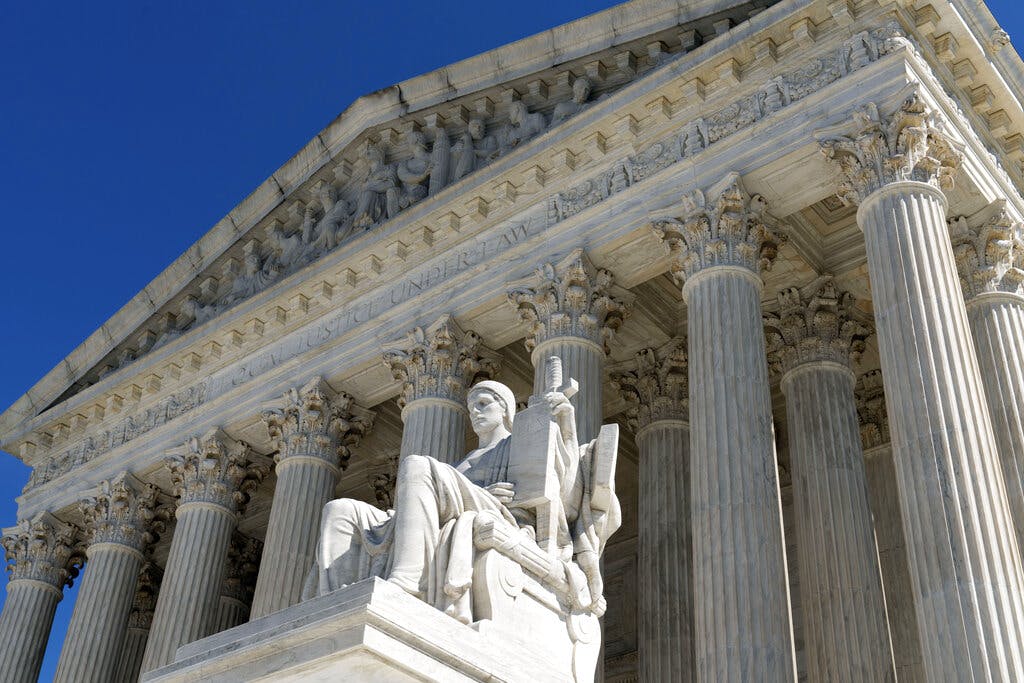Does Conversion Therapy Comport With the Constitution?
A battle over sexual orientation has been playing out in the Ninth Circuit, and could reach the Nine.

The fate of conversion therapy for sexual orientation and gender identity is now a matter for the courts, setting up a legal battle pitting the Constitution against shifting cultural and medical mores, not to mention a possible collision between America’s left-leaning appellate circuit and a high court that is tilted to the right.
The battlefield has thus far been the United States Court of Appeals for the Ninth Circuit. The riders, sitting en banc, declined to reconsider an early decision of a portion of their number. In Tingley v. Ferguson, judges greenlit Washington state’s ban on conversion therapy, though not without dissent from right-leaning riders who argued that the ban violates the First Amendment.
Senior Judge Diarmuid O’Scannlain wrote that the First Amendment “protects therapeutic speech in a way it does not protect physical medical procedures.” As he put it, treatment implemented “through speech” is protected, while that administered “through scalpel” is not.
The Reagan appointee was joined by judges Lawrence VanDyke and Sandra Ikuta, both appointed by Republican presidents. Another rider, Patrick Bumatay, concurred, but on different grounds; he feels that conversion therapy is religiously protected speech.
Judge Bumatay took that position despite acknowledging that the “speech underpinning conversion therapy is overwhelmingly — if not exclusively — religious” and may be “unpopular or even offensive to many Americans.” He insists, though, that it is in “these cases that we must be most vigilant in adhering to constitutional principles.”
The circuit’s discord is traceable to one of its earlier holdings in Pickup v. Brown, from 2014. That case upheld a similar ban on conversion therapy, this one enacted in California. The Pickup riders found that the kind of speech that transpires during conversion therapy is not of the constitutionally protected kind.
In that case, the Ninth Circuit noted that conversion therapy “began at a time when the medical and psychological community considered homosexuality an illness” and that California has the authority to “prohibit licensed mental health providers from administering therapies that the legislature has deemed harmful.”
The historically liberal circuit further reasoned that solely because “speech may be used to carry out those therapies does not turn the prohibitions of conduct into prohibitions of speech.” In other words, “psychotherapists are not entitled to special First Amendment protection” because they trade in “the spoken word.”
The Supreme Court, in a 5-to-4 decision authored by Justice Clarence Thomas, took notice of the Ninth Circuit’s position, and in National Institute of Family and Life Advocates v. Becerra signaled its disapproval. The court noted that it has not recognized “‘professional speech” as a separate category of speech. Speech is not unprotected merely because it is uttered by “professionals.”
In taking the position that restrictions on speech in a professional setting are worthy of no less suspicion than they attract in other contexts, the Nine resisted the urge to “mark off new categories of speech for diminished constitutional protection.” Instead, the court’s majority extended the canopy of First Amendment protection.
The dissenters in Tingley, led by Judge O’Scannlain, take the position that National Institute overrules Pickup and its special solicitude for what he calls the “long (if heretofore unrecognized) tradition of regulation,” one woven from a “gossamer thread of historical evidence.” Speech, they argue, cannot be regulated under the guise of regulating conduct.
The dissenters also observe that, in allowing the ban on conversion therapy, the majority in the court’s panel “entirely ignored the First Amendment’s special solicitude for religious speech.” On that subject, a Supreme Court justice once quipped that a “free speech clause without religion would be Hamlet without the prince.”

